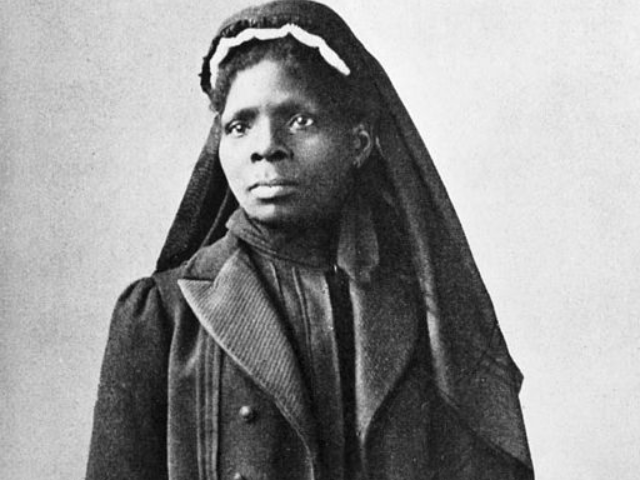
Susie King Taylor, black educator and army nurse (Aug. 6, 1848 - Oct. 6, 1912), published in Reminiscences of My Life in Camp: With the 33d United States Colored Troops Late 1st S.C. Volunteers (1902). Wikimedia Commons.
(1848 - ?) Born into slavery as Susan Baker near Savannah, Georgia, Taylor became free at the age of fourteen when her uncle led her and some of her other family members out of bondage. A federal gunboat plying the waters near the Confederate coastal defense of Fort Pulaski became her ride to freedom.
Taylor found herself one of thousands of refugees on the South Carolina Sea Islands. She soon attached herself to the First South Carolina Volunteers, the first black regiment in the United States Army, and worked as the regimental laundress. Throughout the war would perform the essential duties of cooking and washing. However, her other talents–especially her ability to read and write–soon gave her a wider scope of responsibility. Her knowledge of folk remedies and what she learned of more conventional medicine enabled her to nurse the regiment’s sick and wounded. She also served as the reading instructor for the regiment of former slaves. This would make her a beloved figure in the First South Carolina.
Taylor married Sergeant Edward King of the First South Carolina. Together they would remain with the unit (later in the war designated as the Thirty-third United States Colored Troops) until it was mustered out of service in 1866. During that time Taylor apparently developed into a dead shot and some accounts describe her as having a ready capacity with the mechanism and the use of rifled muskets.
The Kings moved to Savannah, Georgia, in February of 1866. Susie hoped to continue her teaching career and opened a private school for the children of freedmen. Unfortunately, Edward King developed a fatal illness in the summer of that year and died in September. Her private school failed when a free public school for former slaves opened. By 1868 Taylor had been forced to find work as a domestic servant, work she continued after her move to Boston in 1872. In 1879 she married Russell Taylor. She devoted much of the rest of her life to work with the Woman’s Relief Corps. In 1902 she published a memoir of her Civil War service, in which she wrote of her continued interest and love for “the boys in blue.”


